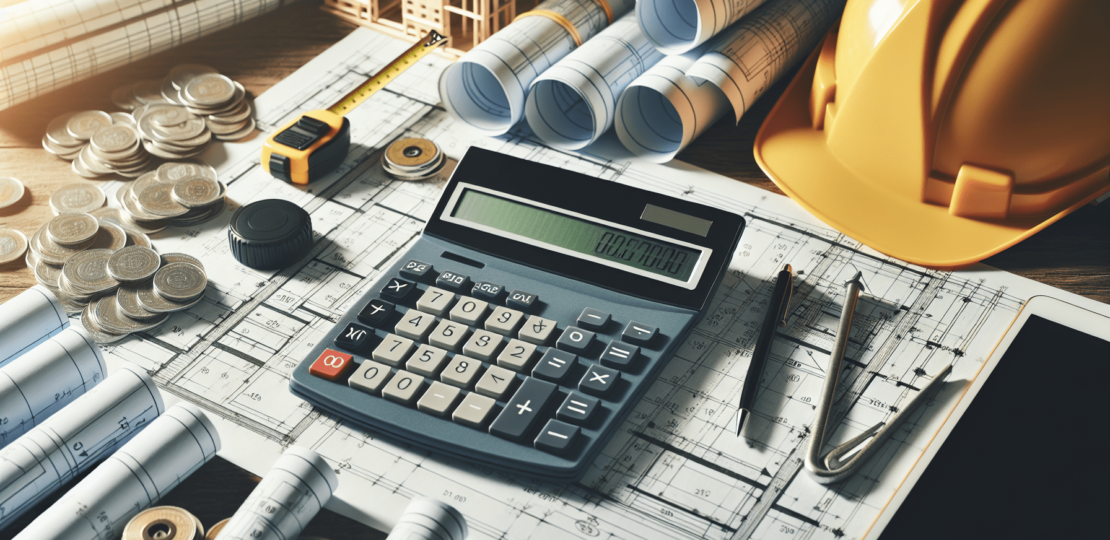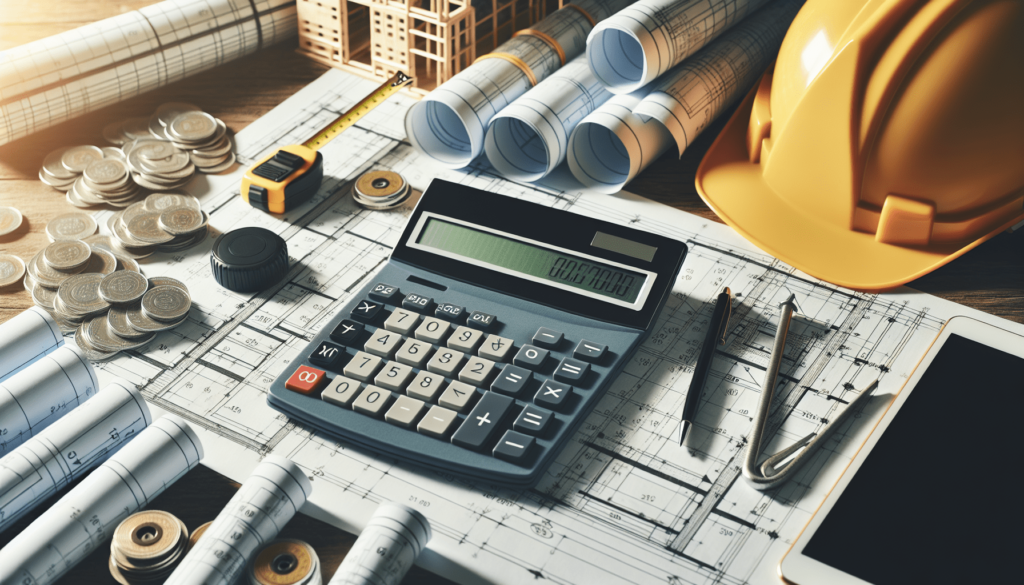What Credit Score Do You Need To Get A Loan To Build A House?
October 17, 2024 | by neoguruman@gmail.com

Are you thinking about building your dream home? One important aspect of this journey is understanding what credit score you need to secure a loan for your construction project. Your credit score plays a crucial role in obtaining financing for a new home, so let’s delve into the details together to help you prepare.
Understanding Construction Loans
Construction loans are short-term loans specifically designed to finance the building of a new home. Unlike traditional mortgages, which typically cover the entire property value upfront, construction loans are distributed in phases. This means that funds are released based on the progress of the construction. It’s vital to have a solid financial foundation and an understanding of how these loans work before embarking on your home-building journey.
Types of Construction Loans
When considering a construction loan, you might encounter several types. Each type serves different needs and circumstances, so it’s beneficial to familiarize yourself with these options.
1. Construction-to-Permanent Loans
This loan type combines the construction loan and mortgage into one package. You secure one loan that will cover both the building phase and the mortgage once construction is complete. This option can simplify the process, as you only have to go through the loan application and approval process once.
2. Stand-Alone Construction Loans
Here, you obtain a primary construction loan to fund the building of your home, and once construction concludes, you seek a separate loan for your mortgage. This approach may require two closing transactions, which can increase costs, but it offers flexibility if you want to shop for mortgage rates during or after construction.
3. Owner-Builder Loans
If you plan to take a hands-on approach and act as your own contractor, an owner-builder loan may be suitable for you. This type is designed for those who want to manage the construction process directly. However, it’s essential to have a strong financial background since lenders may see owner-builders as higher-risk borrowers.
Why Your Credit Score Matters
Your credit score is a reflection of your creditworthiness, and it significantly impacts the loan terms you can secure. Lenders use this score to assess the risk of lending you money. A higher score usually leads to better loan terms, including lower interest rates, while a lower score might limit your options or result in higher rates.
What Credit Score Do You Need?
Understanding the target credit score for securing a construction loan can help you strategize your financial preparations. Generally, credit scores range from 300 to 850, with higher scores representing better credit health.
Minimum Credit Score Requirements
While requirements can vary among lenders, here’s a general guideline for credit scores needed for construction loans:
| Credit Score Range | Loan Type | Considerations |
|---|---|---|
| 720 and above | Best Rates | Most favorable terms and lowest interest rates. |
| 680 – 719 | Good Rates | Generally approved, with competitive rates. |
| 620 – 679 | Acceptable for Some Lenders | May require higher down payments, less favorable terms. |
| 600 – 619 | Riskier Loans | Limited options; higher interest rates expected. |
| Below 600 | Difficult to Secure | Often face rejection or extremely high rates. |
The Impact of Your Credit Score on Loan Terms
Your credit score will influence various elements of your loan. It’s not just about getting approved; it’s about securing the best possible terms. Here’s how your credit score can affect you:
-
Interest Rates: Higher scores generally lead to lower rates. A better interest rate can save you thousands over the life of the loan.
-
Down Payments: Lenders may require larger down payments for borrowers with lower credit scores, increasing your upfront costs.
-
Loan Amounts: Depending on your score, lenders might limit the amount they are willing to loan you, constraining your home-building budget.

Building Your Credit Score
If your current credit score isn’t where you’d like it to be, don’t worry—you can take steps to improve it over time. Here are some effective strategies:
1. Check Your Credit Report
Start by reviewing your credit report for errors. You can request a free report from each of the major credit reporting agencies once a year. If you find inaccuracies, dispute them to potentially improve your score.
2. Pay Bills on Time
Your payment history is a significant component of your credit score. Consistently paying bills on time can enhance your score over time, reflecting your reliability as a borrower.
3. Reduce Debt
If you have high credit card balances, reducing them can positively impact your credit utilization ratio. Aim to keep your utilization below 30% for optimal results.
4. Limit New Credit Applications
Each time you apply for new credit, it can result in a hard inquiry on your report, which may slightly lower your score. Be mindful of the timing of credit applications as you work towards your construction loan.
5. Keep Old Accounts Open
Length of credit history also plays a role in your credit score. Keeping older accounts open, even if they’re not used frequently, can positively influence the average age of your accounts.
Preparing for the Loan Application
Once you have set your target credit score and made strides to improve it, you’ll want to prepare for the actual loan application process. This can make a significant difference in not only getting approved but also securing the best loan terms possible.
Documentation Needed
Lenders will require various documents to assess your financial situation. Having these ready can streamline your application process:
- Proof of Income: Pay stubs, W-2 forms, or tax returns for at least the past two years.
- Credit History: Your credit report, which lenders will pull, but being aware of it can help you discuss any discrepancies.
- Bank Statements: Provide statements for your checking and savings accounts.
- List of Assets: Details about your assets, including any properties, stocks, or valuable items.
- Detailed Construction Plans: This includes permits, plans, estimated costs, and a timeline for your project.
Finding the Right Lender
Not all lenders offer the same terms or loan options. Take the time to shop around and find one that aligns with your financial needs. Use the following criteria to guide your search:
-
Interest Rates: Compare rates among different lenders to find the most competitive option.
-
Loan Flexibility: Look for lenders who offer options conducive to your financing needs, such as construction-to-permanent loans.
-
Customer Service: Consider lenders with positive reviews related to their customer service. You want a lender who is responsive and supportive throughout the process.
Other Factors Influencing Loan Approval
While credit score is paramount, several other factors can play a role in obtaining a construction loan.
1. Debt-to-Income Ratio (DTI)
Your DTI ratio is the percentage of your monthly income that goes towards paying debts. Lenders typically prefer a DTI below 43%, but the lower your ratio, the better your chances of securing a favorable loan. To calculate your DTI, sum all your monthly debt payments and divide that by your gross monthly income.
2. Employment History
Stable employment enhances your application’s appeal. Lenders look favorably upon borrowers with a consistent work history, as it indicates reliability and the capacity to repay the loan.
3. Down Payment Size
The amount you can put down will affect your approval odds and the loan terms. Larger down payments reduce the lender’s risk and can lead to lower interest rates.
4. Builder Qualifications
If you are working with a contractor, their qualifications will also weigh into the lender’s decision. Lenders prefer to work with reputable builders who have a solid track record in construction.
Conclusion
Building a house is a significant financial commitment, and understanding what credit score you need for a construction loan is just one piece of the puzzle. As you embark on this exciting journey, remember that improving your credit score and preparing diligently will position you for success.
Your dream home is within reach, and with the right planning and preparation, you can navigate the world of construction loans with confidence and ease. So, buckle up and get ready for a rewarding adventure in home building!
RELATED POSTS
View all
